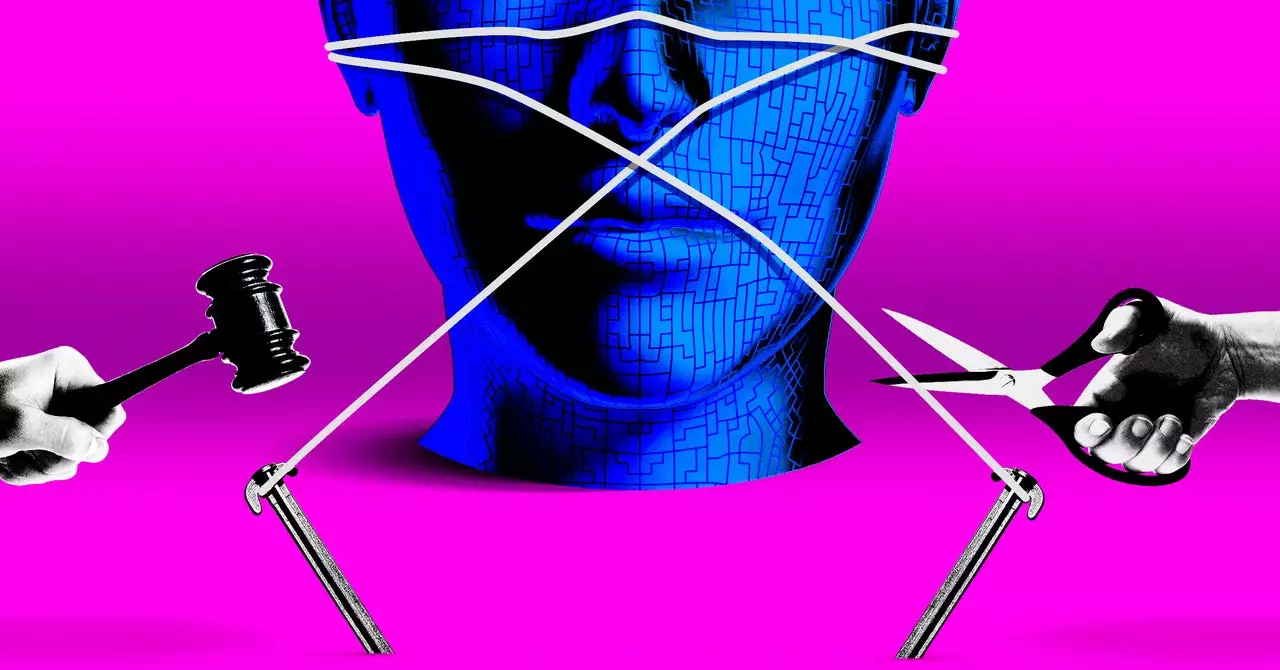The recent press dinner hosted by the enterprise company Box shed light on the conflicting opinions within the tech industry regarding AI regulation. Box CEO Aaron Levie’s remarks about his lack of enthusiasm for government intervention in AI technologies raised eyebrows. Levie expressed his desire for as little regulation as possible, even jokingly claiming that he would single-handedly stop the government. His skepticism about the need for stringent regulations on AI contrasts sharply with the prevailing view in Silicon Valley.
Levie criticized Europe’s approach to AI regulation, citing it as an example of what not to do. He pointed out that Europe’s stringent regulations on AI have failed to foster an atmosphere of innovation. By imposing restrictions on AI development, the EU has hindered technological progress, according to Levie. This perspective challenges the common narrative that strict regulations are necessary to prevent AI-related abuses and protect the public interest.
Levie’s comments also highlighted the lack of consensus within the tech industry regarding AI regulation. Despite calls from some industry leaders to embrace regulation, there is no unified stance on what form those regulations should take. Levie noted that even among AI experts, there is no agreement on the best approach to regulating AI technologies. This lack of cohesion within the tech community complicates efforts to create comprehensive legislation governing AI.
The discussion at TechNet Day underscored the challenges facing the US government in regulating AI technologies. While some panelists advocated for protecting US leadership in the field, others expressed concerns about the fragmentation of AI legislation at the state level. This decentralized approach to AI regulation poses a significant obstacle to creating a coherent national regulatory framework. The sheer volume of AI-related bills pending in various states complicates the prospect of federal legislation on the matter.
Proposed Legislation and its Implications
The introduction of bills like the Generative AI Copyright Disclosure Act of 2024 adds another layer of complexity to the AI regulation debate. Representative Adam Schiff’s bill proposes mandating large language models to disclose copyrighted works used in their training data sets. However, the vague language of the bill raises questions about its enforceability and impact on AI development. The bill’s resemblance to measures in the EU’s AI legislation further complicates the regulatory landscape for AI technologies.
The tech industry’s divergent views on AI regulation, as exemplified by Box CEO Aaron Levie’s remarks, underscore the complexity of governing rapidly evolving technologies. The lack of consensus within the industry, coupled with the challenges faced by the US government in regulating AI, highlights the need for more nuanced and collaborative approaches to addressing AI-related risks. As AI technologies continue to advance, finding a balance between innovation and regulation will be crucial in shaping the future of AI development.


Leave a Reply